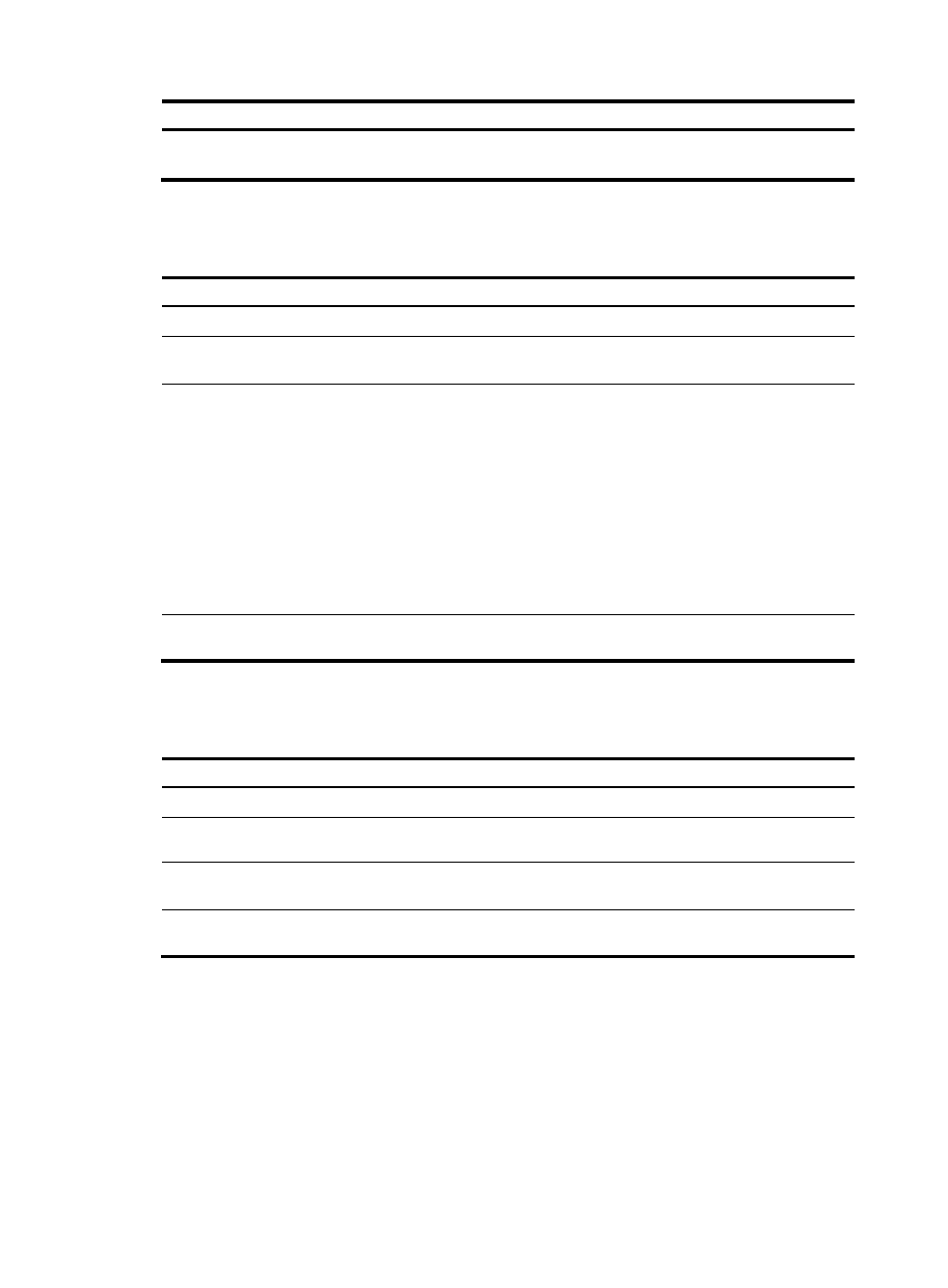Configuring a traffic behavior, Configuring a qos policy, Applying a qos policy – H3C Technologies H3C S6300 Series Switches User Manual
Page 194: Applying a qos policy to an interface, Required.)

181
Step Command
Remarks
3.
Configure match criteria.
if-match match-criteria
By default, no match criterion is
configured in a traffic class.
Configuring a traffic behavior
Step Command
Remarks
1.
Enter system view.
system-view
N/A
2.
Create a traffic behavior and
enter traffic behavior view.
traffic behavior behavior-name
By default, no traffic behavior
exists.
3.
Specify a mirroring action for
the traffic behavior.
•
Mirror traffic to an interface:
mirror-to interface
interface-type interface-number
[ destination-ip
destination-ip-address
source-ip source-ip-address
[ dscp dscp-value | vlan
vlan-id ] * ]
•
Mirror traffic to a CPU:
mirror-to cpu
By default, no mirroring action is
configured for a traffic behavior.
The destination-ip, source-ip, dscp,
and vlan options are available in
Release 2311P02 and later
versions.
When the destination IP address is
specified for the mirrored packets,
the output interface of the route to
the destination address does not
support ECMP.
4.
(Optional.) Display traffic
behavior configuration.
display traffic behavior
Available in any view.
Configuring a QoS policy
Step Command
Remarks
1.
Enter system view.
system-view
N/A
2.
Create a QoS policy and
enter the QoS policy view.
qos policy policy-name
By default, no QoS policy exists.
3.
Associate a class with a traffic
behavior in the QoS policy.
classifier tcl-name behavior
behavior-name
By default, no traffic behavior is
associated with a class.
4.
(Optional.) Display QoS
policy configuration.
display qos policy
Available in any view.
Applying a QoS policy
Applying a QoS policy to an interface
By applying a QoS policy to an interface, you can mirror the traffic in the specified direction on the
interface. A policy can be applied to multiple interfaces. In one direction (inbound or outbound) of an
interface, only one policy can be applied.
